Preface
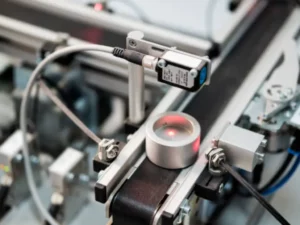
Are you in pursuit of esteemed and dependable manufacturers of sensory technology? The contemporary marketplace is saturated with a plethora of alternatives, necessitating a discerning and judicious selection tailored to your precise requirements. Whether your domain encompasses automotive engineering, medical technology, industrial applications, or consumer electronics, the imperative of identifying a sensor manufacturer that aligns perfectly with your specific needs cannot be overstated. This analytical exposition endeavors to guide you through an in-depth exploration of ten preeminent sensor manufacturers, elucidating their distinct competencies and diverse portfolios in key market segments. Let us embark on this insightful journey!
OMCH (China)

Founding Year: 1986
Main Markets: Asia, Europe, North America
Certifications: ISO 9001, CE
Specific Description:
OMCH, established in the vernal months of 1986, commenced its journey as a nascent collective, primarily engrossed in the development of inductive proximity switches and photoelectric switches. Throughout its illustrious evolution, OMCH has ascended to a position of prominence within the sensor manufacturing sphere, garnering particular acclaim for its superior inductive proximity sensors. The company’s ethos, deeply rooted in the principles of exceptional quality, unerring precision, and a relentless pursuit of innovation, has firmly established OMCH as a vanguard in the realm of automation technology.
The transformation of OMCH from a burgeoning enterprise to a multinational conglomerate is punctuated by pivotal achievements, notably the expansion of their product suite to encompass capacitive proximity switches, light screen sensors, and their flagship inductive proximity switches, which significantly contribute to their revenue stream. This strategic diversification underscores OMCH’s agility and unwavering dedication to aligning with evolving market trends and demands.
OMCH’s production infrastructure is meticulously engineered to cater to both high-quality standards and specialized, low-volume production requisites, thereby ensuring the availability of an extensive array of products, each tailored to meet the unique specifications of their clientele. The company’s prowess in the intricacies of sensor design and advancement affords them a competitive advantage, as they exercise comprehensive control over the entire lifecycle from research and development to manufacturing, inclusive of assembly, precise calibration, and rigorous testing procedures.
Boasting over three decades of profound expertise in the industry, OMCH transcends the conventional boundaries of product manufacture. They place a strong emphasis on prompt delivery and robust customer support services. The company’s cadre of seasoned engineers and customer support personnel blends youthful vigor with seasoned professional acumen, delivering solutions that are not only simple to install, manage, and operate but are also seamlessly integrable with various systems, including building automation and access control systems. This fusion of growth, adaptability, accredited quality, and a heterogeneous product portfolio solidifies OMCH’s status as a trusted and revered entity in the global market.
Panasonic (Japan)
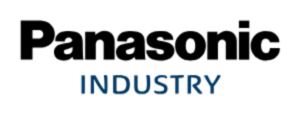
Founding Year: 1918
Main Markets: Global
Certifications: ISO 9001, ISO 14001
Specific Description:
Panasonic, a venerable multinational conglomerate, has been at the forefront of pioneering innovations in the realm of electronic components since its establishment in 1918, with a pronounced focus on sensor technology. This prestigious corporation possesses an extensive array of sensor offerings, encompassing a wide range of types from meticulously designed temperature and humidity sensors to cutting-edge motion detection sensors. These innovative products play a pivotal role across numerous industries, notably automotive, healthcare, and consumer electronics, significantly contributing to advancements in sophisticated home automation systems and groundbreaking wearable technologies.
A defining attribute of Panasonic is their unwavering commitment to research and development, an endeavor that ensures their sensor products consistently remain at the forefront of technological advancement. Their temperature sensors, for example, are celebrated for their exceptional precision and steadfast reliability, attributes that are indispensable in sectors where precise temperature regulation and monitoring are of paramount importance. Furthermore, Panasonic’s dedication to environmental stewardship is demonstrated in their strict compliance with ISO 14001 standards, underscoring a deep-seated commitment to robust environmental management systems. This dedication to ecological responsibility aligns with the growing global emphasis on sustainable and eco-friendly industrial practices, establishing Panasonic as a beacon of corporate environmental stewardship in the technological arena.
Honeywell (USA)

Founding Year: 1906
Main Markets: Global
Certifications: ISO 9001, ISO 14001, OHSAS 18001
Specific Description:
Since its establishment in 1906, Honeywell has emerged as a preeminent entity in the industry, offering a comprehensive and advanced array of sensors, including those designed for pressure, temperature, and air quality measurements. Their extensive international presence, combined with a diverse array of products, cements their status as a supplier of choice for critical sectors such as aerospace, building automation, and consumer goods. The Honeywell marque is universally recognized as a byword for exceptional quality and dependability, often setting the standard in industry benchmarks.
A quintessential attribute of Honeywell’s sensor technology is its exceptional durability and versatility, particularly under severe environmental conditions, making it eminently suitable for use in the demanding realms of aerospace and heavy-duty industrial applications. For example, their air quality sensors are integral components of HVAC systems, playing an instrumental role in ensuring and regulating the optimal environmental conditions necessary for both human comfort and operational efficiency. Honeywell’s resolute commitment to innovation is conspicuously evident in their approach to product development, where they continually incorporate the latest technologies to meet the increasingly sophisticated demands for advanced sensor solutions. Their compliance with OHSAS 18001 certification is a testament to their dedication to upholding rigorous occupational health and safety standards, further reinforcing their standing as a leader in the global sensor market.
Siemens (Germany)

Founding Year: 1847
Main Markets: Global
Certifications: ISO 9001, ISO 14001, ISO 45001
Specific Description:
Siemens, a globally acclaimed technological behemoth, boasts a venerable legacy that traces its origins back to 1847. Their sensor product line, encompassing an array of sophisticated devices such as flow sensors, gas sensors, and level sensors, is tailored to meet the intricate requirements of diverse sectors including energy, healthcare, and transportation. Siemens has earned a reputation for manufacturing sensors that are not only of superior quality but also exhibit remarkable durability, especially in the face of rigorous industrial challenges.
A cornerstone of Siemens’ strategic approach is their emphasis on digitalization and interconnectivity, a move that resonates with the progressive ethos of Industry 4.0. Their sensors are pivotal components in the infrastructure of intelligent factory systems, providing critical data collection and analysis capabilities that are indispensable for the enhancement and optimization of manufacturing processes. Additionally, Siemens’ steadfast commitment to both environmental stewardship and social responsibility is exemplified by their adherence to ISO 14001 and ISO 45001 standards, ensuring that their operations are conducted with a keen eye on sustainability and the safety and well-being of their workforce. The enduring legacy and prestige of Siemens are anchored in their relentless pursuit of innovation and a profound understanding of the dynamic needs of their clientele.
Omron (Japan)

Founding Year: 1933
Main Markets: Global
Certifications: ISO 9001, ISO 14001
Specific Description:
Founded in 1933 in Japan, Omron has ascended to a prominent position in the fields of automation and healthcare sensor technologies. Their product range is exceptionally comprehensive, featuring cutting-edge sensors such as photoelectric, fiber optic, and displacement sensors, each marked by their advanced functionalities and superior capabilities. Omron has garnered acclaim for their pioneering innovations in healthcare devices, supplying sensors that are crucial to the operation of intricate medical equipment. Their relentless dedication to upholding both quality and precision renders their sensors indispensable across various industries, most notably in industrial automation and healthcare sectors.
A critical element underpinning Omron’s remarkable achievements is their strategic fusion of avant-garde technology with practical applications. Consider, for instance, their displacement sensors, which are universally acclaimed for their unmatched precision and reliability, especially in precision engineering contexts. This ensures their consistent delivery of exceptional performance in a wide array of applications, from complex manufacturing operations to sophisticated medical diagnostics. Additionally, Omron’s commitment to environmental sustainability and rigorous quality control is vividly illustrated in their acquisition of ISO 14001 and ISO 9001 certifications. These distinctions not only validate their compliance with international standards but also demonstrate their dedication to environmentally conscious practices and methodologies.
Sick AG (Germany)
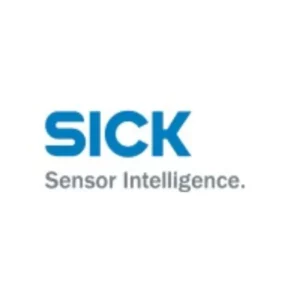
Founding Year: 1946
Main Markets: Global
Certifications: ISO 9001, ISO 14001
Specific Description:
Founded in 1946 in Germany, Sick AG has ascended to the forefront as a paramount entity in the field of advanced sensor technology, predominantly catering to industrial applications. Their extensive array of sensor technologies, which includes but is not limited to sophisticated light curtains, precision-engineered magnetic sensors, and highly accurate gas flow sensors, serves a broad spectrum of sectors such as packaging, factory automation, and logistics. Sick AG is renowned for its trailblazing innovations that significantly elevate safety protocols and operational efficiency in various industrial settings.
The sensor solutions crafted by Sick AG are particularly acclaimed for their durable design and exceptional accuracy, attributes that are crucial in the complex realm of industrial applications. For instance, Sick AG’s light curtains are distinguished for playing an instrumental role in augmenting safety in automated environments, effectively reducing the potential for accidents and ensuring seamless operational continuity. Furthermore, Sick AG’s commitment to environmental sustainability is vividly manifested in their adherence to the ISO 14001 standards, highlighting their dedication to ecological conservation. This fusion of environmental consciousness with their advanced technical prowess further cements Sick AG’s position as a vanguard in the sensor technology sector, particularly in enhancing safety measures and environmental monitoring capabilities.
Fluke Corporation (USA)
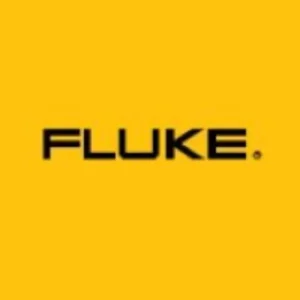
Founding Year: 1948
Main Markets: Global
Certifications: ISO 9001
Specific Description:
Inaugurated in 1948 in the United States, Fluke Corporation has ascended to the forefront as a distinguished supplier of high-caliber test and measurement instruments, encompassing a range of specialized sensors. Expertly catering to sectors such as electrical, HVAC (Heating, Ventilation, and Air Conditioning), and maintenance, Fluke offers a comprehensive assortment of products, including temperature, pressure, and electrical sensors. The Fluke marque is emblematic of unparalleled accuracy and outstanding durability, attributes that have established their sensors as the preferred option for industry experts.
The unique advantage of Fluke resides in their steadfast commitment to precision coupled with an emphasis on user-centric design. Consider, for example, their temperature sensors, which are celebrated for their exceptionally precise measurements — an indispensable attribute in sectors where accurate temperature control is crucial. Their unwavering dedication to upholding the highest quality standards is manifested in their ISO 9001 certification, ensuring that their products consistently surpass global standards. Fluke’s sensors transcend the role of mere instruments; they are essential, reliable partners for professionals who demand data that is not only rigorously accurate but also consistently reliable.
TE Connectivity (Switzerland)
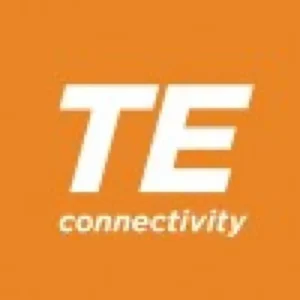
Founding Year: 2000
Main Markets: Global
Certifications: ISO 9001, ISO 14001
Specific Description:
TE Connectivity, a corporation domiciled in Switzerland since its inception in the year 2000, has rapidly ascended to a prominent position in the sophisticated domain of sensor technology. This enterprise boasts an expansive portfolio of advanced sensor products, encompassing a spectrum of devices such as hygrometers, barometers, dynamometers, and galvanometers, all intricately engineered to conform to the rigorous demands of sectors like automotive engineering, industrial machinery fabrication, and aeronautics.
The firm is particularly renowned for its groundbreaking advancements in the miniaturization of sensors, a feat that has resulted in devices of diminutive size yet remarkable efficacy. The prowess of TE Connectivity in crafting sensors that are not only compact but also endowed with formidable capabilities, including state-of-the-art intelligent sensors, stands as a testament to their relentless pursuit of innovation. For example, their force sensors have become indispensable in the arena of advanced robotics, offering the vital sensitivity and accuracy required for performing complex and nuanced operations.
Furthermore, TE Connectivity’s commitment to both operational excellence and environmental sustainability is underscored by their compliance with ISO 9001 and ISO 14001 standards. This adherence is indicative of an unwavering dedication to maintaining the apex of production quality while simultaneously embracing eco-friendly practices. Armed with their avant-garde technology and an all-encompassing suite of products, TE Connectivity has indisputably established itself as a vanguard provider for entities in search of sophisticated and dependable sensor solutions.
NXP Semiconductors (Netherlands)
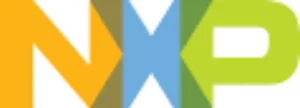
Founding Year: 2006
Main Markets: Global
Certifications: ISO 9001, ISO 14001
Specific Description:
Founded in the Netherlands in 2006, NXP Semiconductors has rapidly ascended to a preeminent position in the sensor industry, particularly distinguishing itself in pivotal sectors such as automotive and consumer electronics. The company’s extensive portfolio, encompassing a sophisticated array of sensors including magnetic, pressure, and temperature variants, is universally acclaimed for its exceptional reliability and superior performance metrics. NXP is acknowledged as an innovator in the realm of sensor technology, notably in the development of applications for intelligent systems, particularly in connected vehicles and Internet of Things (IoT) devices.
A salient feature of NXP’s strategic modus operandi is the seamless amalgamation of sensor technology with avant-garde wireless communication capabilities, thereby enabling the genesis of more intelligent, interconnected solutions. For instance, their precision-engineered temperature sensors play an integral role in enhancing the efficacy of smart home systems, providing precise, dependable data crucial for optimal climate control. The company’s unwavering commitment to innovation, in tandem with an unrelenting adherence to stringent quality benchmarks, is demonstrated through their acquisition of various ISO certifications. This underscores their products’ consistent compliance with exacting international standards. NXP’s forward-thinking and pioneering stance cements its role as an invaluable partner for enterprises aiming to incorporate cutting-edge sensor technology into their product ecosystems.
Emerson Electric (USA)
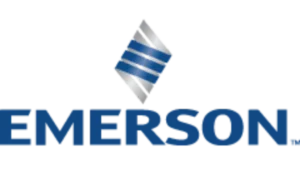
Founding Year: 1890
Main Markets: Global
Certifications: ISO 9001, ISO 14001, ISO 45001
Specific Description:
Emerson Electric, with its storied inception in 1890, has risen to eminence in the realm of sensor manufacturing. Their extensive assortment of sensors, including liquid level sensors, temperature transmitters, and pressure transmitters, is designed to serve an array of industries, notably process control, industrial automation, and energy. Emerson is acclaimed for their pioneering solutions, which significantly augment efficiency and dependability in multifaceted industrial operations.
The sensors from Emerson are renowned for their exceptional precision and robust construction, attributes that are indispensable in challenging environments such as the oil and gas industry and power generation. A case in point is Emerson’s liquid level sensors, which are highly esteemed in the energy sector for their remarkable accuracy and enduring performance, even under severe conditions. Their steadfast commitment to environmental sustainability and occupational health and safety is mirrored in their adherence to various ISO certifications, including ISO 45001. Emerson’s unwavering focus on innovation and quality, combined with their profound understanding of industry demands, solidifies their status as a revered and reliable partner in the field of sensor manufacturing.
Challenges and Solutions in Sensor Manufacturing
In the realm of sensor manufacturing, the adoption of international standards is not merely beneficial but paramount for synchronizing methodologies and practices on a global scale. The meticulous integration of universally acknowledged benchmarks, such as those set by the International Electrotechnical Commission (IEC), the Institute of Electrical and Electronics Engineers (IEEE), and the International Organization for Standardization (ISO), is indispensable in securing cross-border compatibility, ensuring interoperability, and maintaining the highest echelons of quality in diverse international markets. Such compliance not only elevates the standards of production but also positions enterprises at the forefront of technological advancement and customer satisfaction in an increasingly interconnected global marketplace.
How to Choose the Right Sensor Manufacturers?
It is essential to prioritize manufacturers that exhibit a profound commitment to quality, as manifest in accreditations such as ISO 9001. These certifications are a testament to a company’s dedication to upholding elevated standards, particularly in the fabrication of electronic devices and intricate components like analog transducers, controllers, and OEM (Original Equipment Manufacturer) parts.
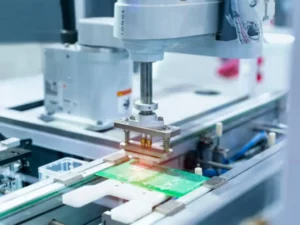
Furthermore, the selected manufacturer should demonstrate a pronounced market footprint and adeptness in current technological trends, particularly in sectors like renewable energy and medical devices — including critical instruments for healthcare industries such as accelerometers for tablets and smartphones — as well as in pharmaceuticals. Their expertise in industries like mining, where durable and dependable sensors are indispensable, should also be a consideration.
An additional vital element is the manufacturer’s capability to provide customized solutions, indicative of their understanding of distinct industry requisites. This involves the ability to furnish bespoke sensors for a myriad of applications, ranging from industrial machinery to consumer electronics, ensuring that their offerings, including analog controllers and transducers, align seamlessly with your specific needs.
In conclusion, selecting the appropriate sensor manufacturing entity requires an exhaustive appraisal of their product diversity, quality certification, market experience, technological acumen, and their proficiency in delivering tailor-made solutions across varied sectors including renewable energy, medical devices, healthcare, mining, and pharmaceuticals.